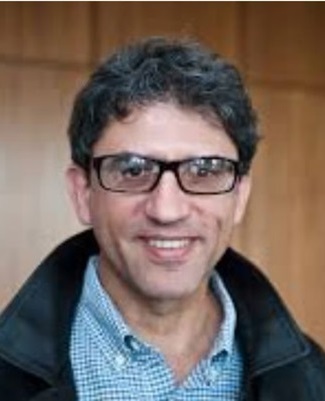| Giuseppe Caire |
|
Title: Unsourced Random Access in Massive MIMO and Cell-Free Networks Speaker: Giuseppe Caire, Technical University Berlin, Germany Abstract Random access is a fundamental function of wireless networks that allows users to stay idle and request transmission resources when they have data to transmit/receive.In practice, systems are designed such that users make use of the same random access codebook (typically a collection of ``preambles''). When an idle user wishes to access the channel, it transmit a codeword on the random access channel (RACH) slot. The receiver must identify the list of transmitted codewords from the received noisy superposition. At this point, the identity of the accessing users is not yet known. However, the receiver should be able to respond to the requesting users with an acknowledgement message (ACK) allocating some resources, such that the users that have transmitted a preamble can recognize and decode their ACK message. In information theory, the paradigm of virtually infinite potential users transmitting codewords from a common codebook is referred to as unsourced random access (uRA). In this talk, we consider uRA in user-centric cell-free (CF) wireless networks.The system is conceptually similar to the so-called 2-step RACH currently discussed in 3GPP standardization.In order to cope with the distributed and CF nature of the network, we propose to partition the network coverage area into zones (referred to as ``locations'') and assign an uRA codebook to each location, such that users in a certain location make use of the associated codebook. The centralized uRA decoder makes use of a new multisource AMP algorithm that we have recently proposed and rigorously analyzed.The algorithm produces at once the list of active uRA codewords, an estimate of the corresponding channel vectors and, as a byproduct, also an estimate of the active users' positions.We show excellent performance of this approach and excellent finite-dimensional agreement with the rigorous theoretical ``state evolution'' analysis. We also show that the proposed ``location-based'' partitioned codebook approach significantly outperforms a baseline system with a single non-partitioned uRA codebook. Biography Giuseppe Caire was born in Torino in 1965. He received a B.Sc. in Electrical Engineering from Politecnico di Torino in 1990, an M.Sc. in Electrical Engineering from Princeton University in 1992, and a Ph.D. from Politecnico di Torino in 1994. He has been a post-doctoral research fellow with the European Space Agency (ESTEC, Noordwijk, The Netherlands) in 1994-1995, Assistant Professor in Telecommunications at the Politecnico di Torino, Associate Professor at the University of Parma, Italy, Professor with the Department of Mobile Communications at the Eurecom Institute, Sophia-Antipolis, France, a Professor of Electrical Engineering with the Viterbi School of Engineering, University of Southern California, Los Angeles, and he is currently an Alexander von Humboldt Professor with the Faculty of Electrical Engineering and Computer Science at the Technical University of Berlin, Germany. He received the Jack Neubauer Best System Paper Award from the IEEE Vehicular Technology Society in 2003, the IEEE Communications Society and Information Theory Society Joint Paper Award in 2004 and in 2011, the Okawa Research Award in 2006, the Alexander von Humboldt Professorship in 2014, the Vodafone Innovation Prize in 2015, an ERC Advanced Grant in 2018,the Leonard G. Abraham Prize for best IEEE JSAC paper in 2019, the IEEE Communications Society Edwin Howard Armstrong Achievement Award in 2020, the 2021 Leibniz Prize of the German National Science Foundation (DFG), and the CTTC Technical Achievement Award of the IEEE Communications Society in 2023. Giuseppe Caire is a Fellow of IEEE since 2005. He has served in the Board of Governors of the IEEE Information Theory Society from 2004 to 2007,and as officer from 2008 to 2013. He was President of the IEEE Information Theory Society in 2011. His main research interests are in the field of communications theory, information theory, channel and source coding with particular focus on wireless communications. |

